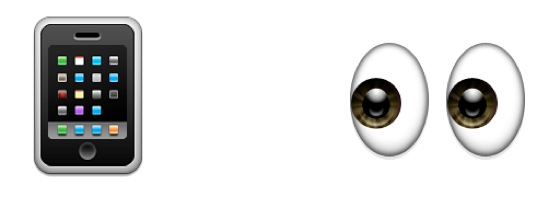How to Tell if Someone Snooped Your iPhone / iPad & Read Emails, Messages, Call Log
If you suspect someone is snooping through your iPhone call log, messages, email, or through other apps, you can set a simple trap of sorts to potentially catch such intrusions on privacy. The idea behind this is pretty simple: quit out of all apps to leave the task bar empty, then check on the multitask screen to see if someone used an app. Since most people don’t bother to check what apps are running, they will unintentionally leave their app usage traces behind.

Here’s how to set the app-trap on any iPhone, iPad, or iPod touch, and how to check it later to see if someone was using apps and meddling about your business:
Setting the Snoop Trap in iOS
If you’re convinced (or paranoid) that someone is peeking at your apps, messages, or private details, you can do this every time you leave an iOS device alone:
- Double-click the Home button to summon multitasking
- Tap and hold on an app icon then tap the red (-) button to kill the apps – you can use multitouch on the red buttons to quit multiple apps at the same time to speed up the process
- With a blank multitask screen, tap the Home button again to return to the home screen as usual

Now you just need to leave the iPhone, iPad, or iPod alone, placed somewhere that you think the snoop may use the device to poke around in apps, messages, call logs, snap chats, whatever you are suspicious someone is being overly nosy with.
(Note: iOS 7 requires a swipe up on apps to kill them, the tap-and-hold function no longer works to quit apps. All else is the same, however)
Checking the Snoop Trap to See if Someone Used Your iPhone / iPad
After you have set the trap and suspect someone may have used the device, catching the snoop is quite simple:
- Double-tap on the Home button again to summon the multitasking screen – if any apps appear in the menu then you know someone has opened them in your absence
In this screen shot example, someone launched the “Messages” app after all the other apps had been quit, indicating that someone used the iPhone and poked around in the messages application to read texts or iMessages:

Determining if someone read emails would be indicated by Mail, Gmail, Yahoo Mail, or whatever email client being left open. Call logs would be shown as the Phone app, and whatever other app(s) left open could be suggestive of someone poking around in there.
If multiple apps have been opened, the order in which they appear – from left to right – indicates which app was most recently used or gone through. You could be a bit more subtle and leave a series of apps in the task bar this way, then simply look for that sequence of apps to be out of order or rearranged to catch prying eyes.
Of course, if someone is savvy enough to check the multitasking bar or is aware of this app trap concept, they’ll be able to evade such tactics by quitting the apps again after browsing through them. Nonetheless, for the average iPhone, iPad, and iPod touch user, this should be sufficient to catch your average petty snoop of a curious little sibling, a suspicious partner, or an invasive roommate.
We’ve discussed similar tricks for the Mac to help determine if someone was opening files or applications, but unlike OS X, iOS offers no easily accessible system logs demonstrating unlock or wake records.
Preventing Privacy Invasions & Snoopers
The best way to prevent any snooping, poking about, or general invasion of your iOS device privacy is by using a pass word on your iPhone, iPad, or iPod touch, preferably setting a strong passcode that is alphanumeric and not easily guessed.

Finally, if you backup an iOS device to your computer through iTunes, be sure to enable backup encryption for the iPhone, iPad, or iPod touch to prevent determined parties from being able to easily gain access to the device backups, including text messages, call logs, and other personal data.
–
Heads up to CultOfMac for this busybody buster trick.

